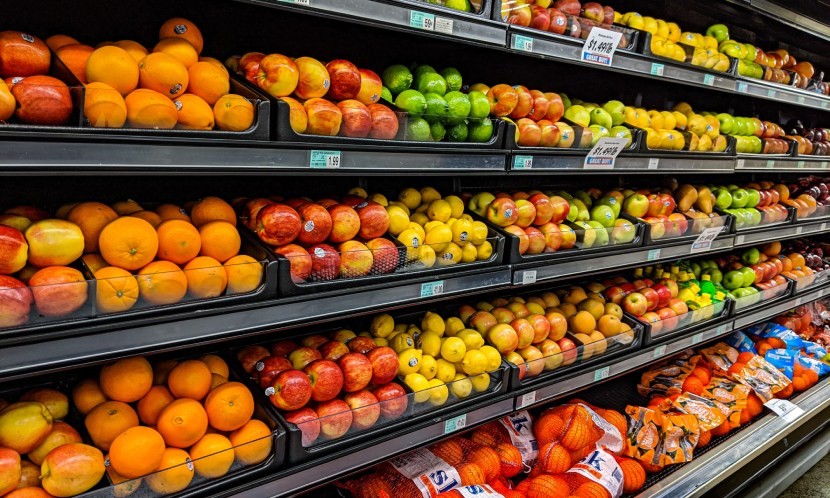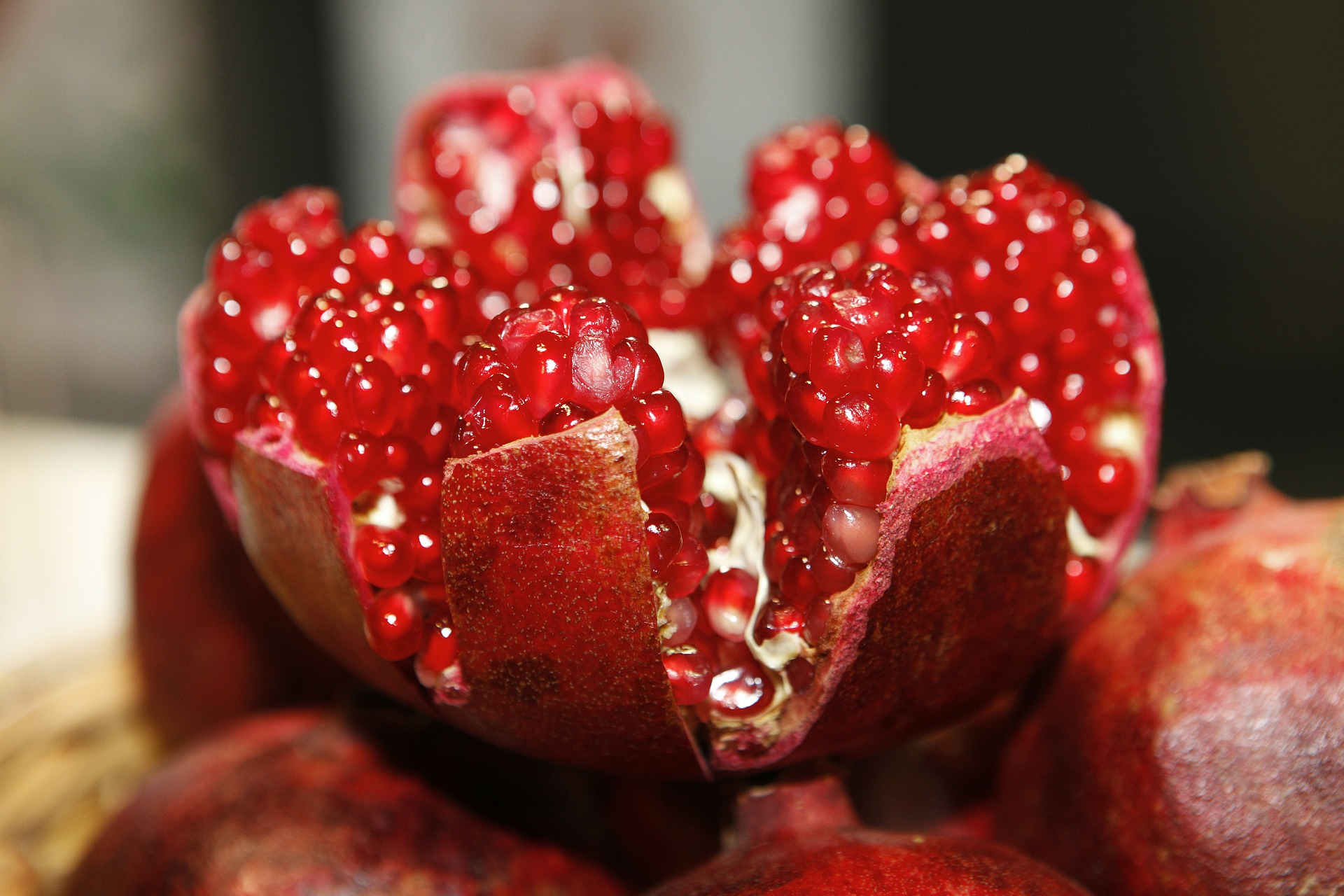14 super foods that will change your life
14 super foods that will change your life
Whenever we sit down to eat, we are making a choice between life and death. It sounds scary at first, but it is also a choice that changes the timeline of life and health. Whether you are 22 or 62 years old, when you choose to enjoy your next meal, you are making a decision, and this decision will affect the way you spend the rest of your life.
Of course, no one can guarantee that a healthy diet can make people disease-free and pain-free. However, there is enough evidence to show that certain foods are indeed related to avoiding certain diseases. This is exciting because it means that our hands and plates can change the future.
Welcome to the world of superfoods

“Superfoods” is based on a very simple concept: some foods are more healthy than others.
We can all guess that apples are more healthy than potato chips; or even if you smoke, are overweight, and never exercise, grabbing a few handfuls of nuts to eat in a week can reduce the risk of heart attack by at least 15%. This is why certain foods are so powerful.
“Super Food” proposes 14 nutritious foods. They have been proven to help prevent and in some cases reverse the harmful effects of aging, including cardiovascular disease, type 2 diabetes, high blood pressure, certain cancers, and even dementia in the elderly.
Superfoods are mostly “partner foods”, which are usually in the same category as superfoods and provide similar nutrients. For example, almonds, sunflower seeds, walnuts, and several other nuts are all companion foods of superfood walnuts and can be eaten with them.
1. Beans: a rich source of protein and vitamin B complex
Beans are a rich source of vitamin B complex. They are low in fat, low in price, and contain a variety of proteins. For these reasons alone, beans should have a place on the table. The power of beans includes:
*reduce cholesterol
*Fight against heart disease and high blood pressure
*Stable blood sugar
*Reduce obesity
*Relieve constipation
*Relieve diseases related to diverticulum (such as colonic diverticulosis)
*Type 2 diabetes
*Reduce the risk of cancer, especially pancreatic cancer, colon cancer, breast cancer and prostate cancer.
Many people worry that beans will cause flatulence. Beans do cause flatulence in the stomach and intestines. This is caused by bacteria attacking hard-to-digest substances left in the intestine. The following suggestions can alleviate the discomfort caused by the consumption of beans:
*Canned beans and bean paste are less likely to cause flatulence.
*If you eat beans often in small amounts, your body will adapt to the food and digestive problems will be reduced.
*Soak the beans before cooking: rinse and pick the beans, boil the water and boil for 2 to 3 minutes. Turn off the heat, let the beans soak in water for a few hours, then add water to boil. This process of boiling and soaking will cause the beans to release most of the indigestible carbohydrates. Although this method will lose some vitamins, if you can enjoy beans, it will be beneficial.
Read also: The new trend of home sports epidemic prevention
2. Blueberries: super antioxidants

■Partner food: red grapes, strawberries, cherries, cranberries, raspberries, blackberries, and other fresh, frozen or dried berries.
■Recommendation: Take 1 to 2 cups a day.
Although blueberries have a small appearance, they have great nutritional power and contain more powerful antioxidants that fight diseases than other fruits and vegetables.
The benefits of blueberries include reducing the risk of cardiovascular disease and cancer, and helping to maintain healthy skin, alleviating sagging skin and eye bags.
Blueberries contain high amounts of antioxidant phytonutrients, especially anthocyanins, which play an important role in preventing cardiovascular diseases, diabetes, dementia, cancer, and degenerative eye diseases such as macular degeneration and cataracts. At the same time, it has also proved to help reduce the incidence of breast cancer.
Blueberries also contain another antioxidant-ellagic acid (ellagic), which can block the metabolic pathways that promote cancer.
Blueberries are also rich in pectin. This soluble fiber can relieve diarrhea and constipation. The tannins contained in blueberries can relieve inflammation of the digestive system. Blueberries can also reduce hemorrhagic Escherichia coli and promote urinary tract health.
3. Broccoli: a powerful anti-cancer weapon, the main source of iron for vegetarians
■Partner food: cabbage, cabbage (cabbage), white cauliflower, cabbage, qingjiang vegetable, mustard greens, turnips.
■Recommendation: Take 0.5 to 1 cup a day.
Broccoli and the companion food of the same cruciferous plant are the most powerful weapons against cancer, especially lung cancer, stomach cancer, colon cancer and rectal cancer.
The relationship between broccoli and colon cancer is the most significant. In other words, the greater the intake of broccoli, the lower the chance of colon cancer.
In addition, broccoli can also improve the ability of the immune system, reduce the incidence of cataracts, strengthen cardiovascular health, strengthen bones, and prevent birth defects and deformities. Broccoli is one of the foods known to contain the highest nutrient density, but it is very low in calories; it is also an excellent source of vegetarian iron.
It is worth noting that broccoli contains substances that can cause goiter and should not be taken in excess; however, it is absolutely safe to eat two cups a day.
4. Oats: the hero of lowering cholesterol and blood sugar
■Partner food: brown rice, wheat germ, millet, yellow corn, flaxseed meal, barley, wheat, buckwheat, rye.
■Recommendation: 5-7 servings of the above whole grains a day.
Oats are low in calories and rich in fiber and protein. They are also a rich source of magnesium, potassium, zinc, copper, manganese, selenium, vitamin B1, E and pantothenic acid. Oats also contain plant nutrients, such as polyphenols, phytoestrogens, etc., which can help reduce heart disease and certain cancers.
The ability of oatmeal to lower cholesterol is particularly noticeable. The special fiber contained in oatmeal, Cheung E sugar, seems to be responsible for lowering cholesterol.
Studies have shown that people with high cholesterol (over 220mg/dl) can reduce their total cholesterol by 8 to 23% if they consume only 3 grams of the soluble fiber contained in oats a day, or about a bowl of oatmeal.
If every 1% reduction in serum cholesterol is interpreted as a 2% reduction in the risk of heart disease, you can see how much oatmeal affects.
Oatmeal also has a positive effect on blood sugar concentration. The soluble fiber that can lower cholesterol is also beneficial to people with type 2 diabetes.
People who eat oatmeal or foods rich in oat bran have lower blood sugar levels than when they eat rice or white bread, because the soluble fiber in oatmeal can slow the speed of food leaving the stomach and delay the absorption of glucose.
5. Oranges: Rich in vitamins, eating is more beneficial than drinking

■Partner food: lemon, grapefruit, other citrus fruits.
■Suggestion: Take 1 serving a day.
In the 15th and 16th centuries, countless sailors died of scurvy while sailing for a long time. It was not until the middle of the 18th century that everyone discovered that the vitamin C in citrus fruits could save lives.
Citrus fruits are rich in vitamin C and other important nutrients, such as flavonoids, pectin, folic acid, and limonene, which play an important role in reducing the incidence of chronic diseases. Many studies have found that oranges can maintain heart health and prevent cancer, stroke, diabetes, and many chronic diseases.
Citrus fruits have nutritional value from the inside out. The vitamin C concentration in orange pulp is 10 times that of juice. Therefore, eating fresh oranges is more beneficial than drinking juice.
However, vitamin C is soluble in water and cannot stay in the body, so it is best to supplement it from diet sources every day to maintain the proper concentration of vitamin C in cells and blood.
The white lining of citrus fruits contains a lot of pectin, which is effective in reducing cholesterol and stabilizing blood sugar. Eating white lining is a simple way to increase the intake of pectin. You can also dig a little peel and ingest limonene.
The peel of citrus fruits contains many nutrients, but if you want to eat the peel, remember to wash it carefully first, or it is best to buy organic citrus fruits.
6. Pumpkin: rich in carotenoids (α+β)
■Partner food: carrots, sweet potatoes, orange peppers.
■Recommendation: Take 1.5 cups every 2 to 3 days.
Pumpkin is extremely high in fiber, low in calories, and full of nutrients that fight diseases, including potassium, pantothenic acid, magnesium, vitamin C and E, and the fiber content is also quite high.
However, the main nutrients that put pumpkin on the top list of superfood prescriptions are carotenoids (including alpha and beta carotenoids).
Foods rich in carotenoids have many abilities to promote health and fight diseases.
They have been proven to reduce the risk of many types of cancer, including:
*Lung cancer
* Colon cancer
*Bladder Cancer
* Cervical cancer
*Breast cancer
*skin cancer
*heart disease
*cataract
*The macular degeneration of the eye
*Protect skin and eyes from UV damage
The beta carotene in food helps prevent lung cancer, but surprisingly, beta carotene supplements can’t exert the same effect.
Studies have shown that people who take beta carotene supplements have an increased incidence of lung cancer. This is because carotenoids must work together with other nutrients, and after the dissolution, the effect is difficult to predict. Therefore, taking beta carotene from natural foods is currently a safer way.
7. Wild salmon: provide essential fatty acids

■Partner food: black bass, oysters and clams, sardines, flounder, canned mackerel tuna, herring, trout.
■Suggestion: Eat 2 to 4 times a week.
Not all fats are harmful to health. The unsaturated fatty acid omega-3 contained in salmon is one of the indispensable essential fatty acids for the body, which helps the body to produce ideal cell membranes.
If the structure of the cell membrane is not sound, it will not be able to obtain the ideal nutrients for the cells, which will make the health a red light; these health problems include:
*Stroke
*Heart attack
*Arrhythmia
*Some cancers, such as breast cancer and colon cancer
*diabetes
*asthma
*hypertension
*The macular degeneration of the eye
* Chronic Obstructive Pulmonary Disease (COPE)
* Disorders of the autoimmune system, such as lupus erythematosus, rheumatoid arthritis
* Hyperactivity
*Depression
Insufficiency of essential fatty acids is almost impossible to detect because its symptoms are not obvious. Dry skin, fatigue, easy nails and hair breakage, constipation, frequent colds, inability to concentrate, depression, and joint pain may all be caused by a lack of omega-3 fatty acids in the diet.
8. Soy: the best plant-based protein
■Partner food: all kinds of soy products, such as tofu, soy milk, miso.
■Recommendation: At least 15 grams of soy protein a day, divide the daily portion into two meals or snacks.
Soybeans are rich in vitamin E, minerals and plant protein, and contain a lot of soluble fiber, omega-3 fatty acids. The most important thing is that soybeans provide a lot of phytonutrients that can fight diseases, such as phytoestrogens.
Many studies have found that soybeans have a positive effect in preventing cardiovascular disease, cancer and osteoporosis, and also help relieve symptoms of menopause and menstruation.
The isoflavones in soybeans have similar effects to estrogen naturally secreted by the human body and can prevent hormone-related cancers, such as breast cancer and prostate cancer.
After the nutritional value of soybeans was widely publicized, isoflavone supplements were immediately on the shelves of health food stores, claiming to reduce menopausal symptoms in women. However, it is still unknown whether isoflavone supplements can achieve the same effects as natural soybeans. Therefore, it is safer to consume natural soybeans.
9. Spinach: a nutritional model student
■Partner food: cabbage, mustard greens, qingjiang greens, romaine lettuce (commonly known as “mainland girl”), turnip leaves, orange pepper.
■Suggestion: Take one cup every 2 to 3 days.
Popeye Bupa always becomes strong and mighty after eating canned spinach. Indeed, spinach is more healthy than any other food. It can be called a “nutrition model student”. Its nutrients can be listed in a long list: carotenoids, antioxidants such as vitamin C and E, vitamin K and B complex, and auxiliary. Q10, minerals (calcium, iron, etc.), chlorophyll, polyphenols, omega-3 unsaturated fatty acids, etc.
Many studies have confirmed that spinach can reduce the risk of suffering from the following diseases:
* Cardiovascular diseases, including stroke and coronary artery disease
* Colon cancer, lung cancer, skin cancer, oral cancer, stomach cancer, ovarian cancer, prostate cancer and breast cancer and other cancers
*Macular degeneration of the eye caused by aging
10. Tea: rich in catechins, reduce the risk of various cancers

■Recommendation: At least one cup a day.
Tasting tea is an ancient pastime. Orientals have long known that the benefits of tea extend to body, mind, and soul, but until recently, Westerners were surprised that tea is a healthy drink.
Studies have found that the catechins in tea can inhibit the formation and growth of tumors and reduce the risk of almost all cancers.
Tea can also help prevent the following diseases:
* Osteoporosis
* Lower blood pressure and reduce the risk of stroke
*Promote heart health
*May prevent sun damage to the skin, such as wrinkles and skin cancer
*Antiviral
*Anti-inflammatory
*Anti-cavities
*anti-allergy
*Prevent cataract
11. Tomato: Rich in lycopene, the benefits are endless
■Partner food: red watermelon, red grapefruit, persimmon, papaya, red guava.
■Suggestion: Take a glass of tomato juice or partner food every day, and many fresh tomatoes every week.
Lycopene is one of the members of the carotenoid family. It is the pigment that gives tomato red color and is also the main contributor to tomato’s health promotion.
Tomatoes are particularly effective in preventing prostate cancer; and more and more studies have shown that tomatoes can also reduce the risk of breast cancer, gastrointestinal cancer, cervical cancer, bladder cancer and lung cancer to some extent.
Lycopene, vitamin C and carotenoids in tomatoes are excellent antioxidants. Together with rich potassium, nicotinic acid, vitamin B6 and folic acid, they work together to maintain cardiovascular health.
Lycopene is combined with other nutrients to increase the sun protection ability of the skin. In other words, it is like a sunscreen lotion in the body.
In addition, lycopene can also indirectly reduce the risk of macular degeneration caused by aging.
12. Turkey (chicken breast): Lean meat is the most abundant in protein
■Partner food: skinless chicken breast
■Recommendation: 3 to 4 servings per week, each serving is about 85 to 115 grams.
Skinless turkey breast is one of the leanest meat proteins, and the content of calories and saturated fat is lower than that of general chicken breast.
Turkey also provides rich nutrients, especially nicotinic acid, selenium, vitamins B6 and B12, and zinc, which are good for heart health and help reduce the risk of cancer and maintain a healthy immune system.
13. Walnuts: Unsaturated fatty acids lower cholesterol
■Partner food: almonds, pistachios, sesame, peanuts, pumpkin seeds, sunflower seeds, cashews, walnuts, macadamia nuts, hazelnuts.
■Suggestion: Take 5 times a week, about 25-30 grams each time.
Walnuts and other nuts are rich in healthy omega-3 fatty acids, which can lower cholesterol and reduce the risk of heart disease.
Studies have also found that people who eat nuts often have a lower risk of diabetes, cancer, and many other chronic diseases. The large amount of vitamin E in nuts is also beneficial to brain health.
It should be noted that nuts are quite high in calories and should not be consumed in excess; please remember the key concept of “substitution”: use nuts to replace other saturated fatty acids, such as cheese and butter.
14. Yogurt: Probiotics strengthen the immune system

■Recommendation: Two cups a day
Yogurt provides many healthful substances, such as live bacteria, protein, calcium and vitamin B complex. Its effects include preventing cancer (especially colon cancer), lowering cholesterol and blood pressure, relieving atopic dermatitis and lactose intolerance Disease, and inhibit harmful bacteria, etc.
The gastrointestinal tract is a hotbed of more than 500 kinds of bacteria. They are good or bad. Probiotics can help carbohydrate metabolism, synthesis of amino acids and vitamin K. Yogurt is a source of beneficial bacteria, which are beneficial to the health of the digestive tract and strengthen the immune system.
Studies have shown that after eating yogurt containing live bacteria, the common pathogenic bacteria in the nasal passages, Staphylococcus aureus, will decrease. This is a clear sign that yogurt stimulates the immune system, and there is a healthy conduction between the immune system of the gastrointestinal tract and the upper respiratory tract.
When buying yogurt, please pay attention to the following:
*Low-fat or non-fat yogurt is better.
* Does not contain artificial colors.
*Buy fresh yogurt (check the expiration date on the container).
* Yogurt containing whey protein on the ingredient label (whey protein can increase the viability of beneficial bacteria).
* Rich in live bacteria, the more types the better.



